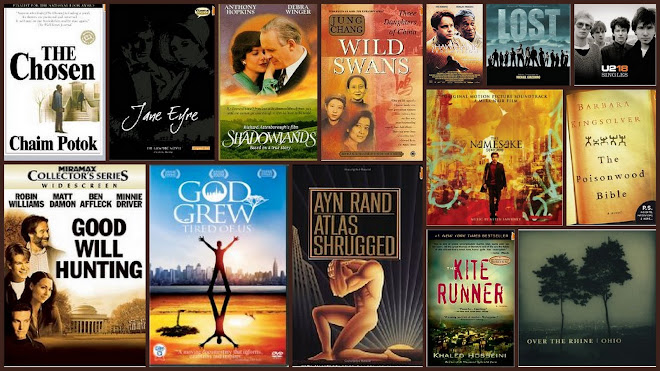
Night is by Elie Wiesel, a Holocaust and Auschwitz survivor and a Nobel prize winner. The book is short and powerful, and is required reading for most US public schools.
It was an easy read. I don't think the writing itself stands above and beyond other writing. I think the power of the story and the deep emotion is really what makes it a Nobel novel. Wiesel says in the preface that the novel was initially much longer and was liberally slashed. Reading it felt like reading stream-of-memory thoughts because so much was slashed that probably initially made it flow nicely. I think the bluntness helped the power of the novel - it felt extremely raw.
To me, though, the most interesting thing was actually a forward written by Francois Mauriac, the man that found a printer for the book. He tells of meeting Wiesel, of talking about the Holocaust and being shocked and silenced by the darkness of Wiesel's childhood experiences of having his mother and sister taken to the ovens, his father dying before his eyes, and in the process losing what was once a deeply personal Jewish faith.
Mauriac is a Christian, and his thoughts blew me away. I'm not quite sure how it made it into the printing. He compares Wiesel's process to the musings of Nietzsche, and understand that in the face of such immense evil, Wiesel can't conceive of a good God and so decides that God is dead. Mauriac says,
And I, who believe that God is love, what answer was there to give my young interlocutor whose dark eyes still held the reflection of a hanged child? What did I say to him? Did I speak to him of that other Jew, this crucified brother who perhaps resembled him and whose cross conquered the world? Did I explain to him that what had been a stumbling block for his faith had become a cornerstone for mine? And that the connection between the cross and human suffering remains, in my view, the key to the unfathomable mystery in which the faith of his childhood was lost?This paragraph stuns me. I believe it's true - that is is impossible to face the depth and darkness of human suffering and depravity with any hope until you recognize the participation of God in the death and suffering and the hope we now gain in the resurrection of Jesus Christ.
Yeah. I don't know how in the world that paragraph was let through, considering the book and its audience are highly skeptical of faith.





I've picked up and put down this book so many times...I think I'm just too wimpy to face the heartbreaking tragedy involved. For some reason I feel myself really drawn to Holocaust history, but I always stop before getting drawn too far into the really deep emotions. Maybe I just need to surrender, and read this book as a jumping off point?
ReplyDeleteWiesel was one of the reasons I went to graduate school (I studied Nazi Germany), or at least he was the most powerful example of why I went.
ReplyDeleteI think it wrong to say that he lost his faith because of the Holocaust as many people think; certainly many victims of the Shoah did but I think it's fascinating the trajectory of his faith, Night representing a part of it. I think he would say something like, he was destroyed and remade, was intensely angry at God and that much ambiguity and ambivalence remains.
---
hey fyi if this is what I remember it to be, it's really worth listening to:
http://speakingoffaith.publicradio.org/programs/wiesel/